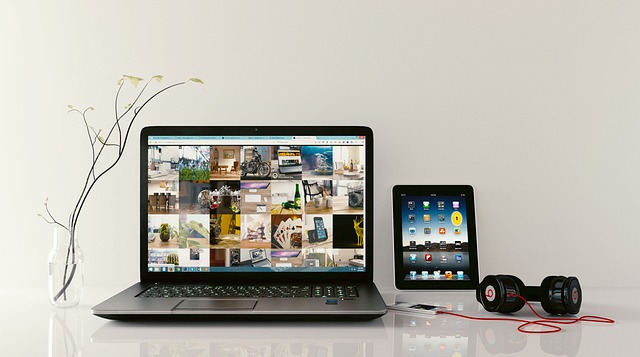In today’s fast-paced world, laptops have become an essential tool for both personal and professional use. Whether you are a student, a business professional, or a gamer, you need a laptop that can keep up with your needs. However, as powerful as laptops are, they are also prone to overheating, which can cause serious damage to your device. In this article, we will share some simple tips to keep your laptop from overheating.
Keep Your Laptop Clean
The first step to preventing overheating is to keep your laptop clean. Over time, dust and debris can accumulate in your laptop’s vents and fans, which can obstruct airflow and cause your device to overheat.

To prevent this, you should regularly clean your laptop using a soft, dry cloth. You can also use compressed air to blow out any dust and debris that may have accumulated in your laptop’s vents.
Use a Laptop Cooling Pad
A laptop cooling pad is an accessory that you can place underneath your laptop to improve airflow and prevent overheating. It has built-in fans that draw heat away from your device, keeping it cool.
Laptop cooling pads are available in a variety of sizes and shapes, so you can choose one that fits your laptop’s size and design. They are affordable and easy to use, making them a great investment for anyone who uses a laptop regularly.
Don’t Use Your Laptop on Soft Surfaces
One of the most common mistakes people make is using their laptop on soft surfaces like beds and couches. This can block your laptop’s vents, causing it to overheat. Instead, use your laptop on a hard, flat surface like a desk or table. If you must use your laptop on a soft surface, consider using a tray or board to create a flat surface for your device.
Avoid Overloading Your Laptop
Running too many programs or apps at once can cause your laptop to overheat. This is because your laptop’s processor has to work harder to keep up with all the demands, which generates more heat.

To prevent this, try to keep the number of programs and apps you are using at a minimum. Close any programs that you are not using and avoid running too many programs simultaneously.
Adjust Your Laptop’s Power Settings
Your laptop’s power settings can also affect its temperature. By default, laptops are usually set to “balanced” or “power saver” mode, which can reduce your device’s performance to save power. However, this can also cause your laptop to overheat.
To prevent this, consider switching to “high performance” mode when you need to use your laptop for demanding tasks like gaming or video editing. You can also adjust your laptop’s power settings to reduce its performance when you are not using it.
Monitor Your Laptop’s Temperature
Finally, it is essential to monitor your laptop’s temperature regularly to ensure that it is not overheating. You can use software tools like HWMonitor or Core Temp to monitor your device’s temperature in real-time. If you notice that your laptop is running hot, take a break and let it cool down before using it again. You can also adjust your laptop’s settings or use a cooling pad to prevent overheating.

In conclusion, overheating is a common problem that affects laptops of all brands and models. However, by following these simple tips, you can keep your device cool and prevent damage to its components. Remember to keep your laptop clean, use a cooling pad, avoid soft surfaces, avoid overloading your laptop, adjust your power settings, and monitor your laptop’s temperature regularly. By doing so, you can enjoy using your laptop without worrying about overheating.







